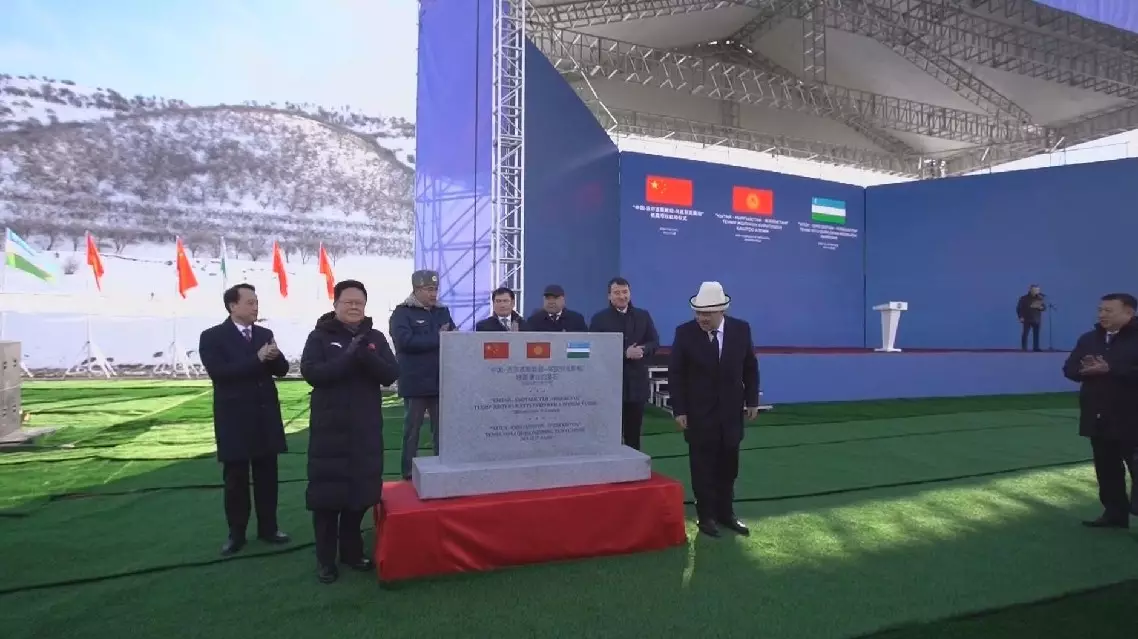Anime, Comic, Games and Novels (ACGN) and other two-dimensional products have become increasingly popular among young people in China. These ACGN products, often referred to as "guzi," derived from "goods" in English, include blind boxes, badges and dolls featuring virtual characters. In a bustling shopping district in Shanghai, a seven-story mall is entirely dedicated to ACGN merchandise. The peak consumer traffic occurs during the summer vacation, and this year has seen remarkable growth in sales, according to the manager.
"In the first 11 months, our overall sales increased by 77 percent over last year, and the customer flow rose by 40 percent. We organized over 600 events throughout the year. For a single store with an area of over 10,000 square meters, we recorded a maximum customer flow of 90,000. For us, all sales performances have exceeded expectations," said Qian Junjie, deputy general manager of the mall. "Guzi generally includes badges, acrylic stands, acrylic pendants and various printed products. In recent years, plush toys, coin purses and tissue boxes have also become popular," said Wang Chengxuan, executive of a guzi manufacturing company. Other guzi shops selling fan-made products are also generating significant revenue.
"For example, the creator of this product is a girl sophomore. From this product, she can earn about 50,000 yuan (about 6,850 U.S. dollars) in 18 months," said Zhang Beiyun, a guzi shop owner. Many ACGN stores have opened in Shanghai in recent years, with many incorporating guzi shops or brands, significantly boosting their customer traffic. "We can maintain an overall gross profit at around 30 percent. During peak seasons like summer and winter vacations, sales can reach 10,000 or even 20,000 to 30,000 yuan," said Xie Rui, a guzi shop owner.
The majority of the consumers for guzi are female, making up about 61.4 percent of the market. Most consumers live in first-tier cities, accounting for 55.3 percent, according to industry data. In 2024, the market size of China's guzi economy is expected to reach 168.9 billion yuan, an increase of more than 40 percent over 2023.

Animation, comic, gaming merchandise gain popularity among Chinese young people
The commencement ceremony of the China-Kyrgyzstan-Uzbekistan railway project was held in Jalalabad, Kyrgyzstan on Friday.
Chinese President Xi Jinping sent a congratulatory letter to the commencement ceremony of the cross-border railway project.
In his letter, Xi emphasized that the construction of the China-Kyrgyzstan-Uzbekistan railway is a strategic decision made by the governments of the three countries to enhance regional connectivity, prosperity, and stability.
He noted that the project represents a significant step forward in promoting cooperation and development across the region.
At the ceremony, representatives from the three countries unveiled the project's cornerstone.
President Xi's Special Envoy and director of the National Development and Reform Commission, Zheng Shanjie, attended the launch ceremony.
Zheng read out President Xi's congratulatory letter and delivered a speech at the event, emphasizing the project's significance as a milestone in trilateral cooperation.
He noted that the railway will establish a new land corridor connecting Asia and Europe, greatly contributing to regional prosperity.
He also underscored the importance of close collaboration among the three countries to ensure high standards and high-quality progress in the railway's construction.
Kyrgyz President Sadyr Japarov attended the event, stating that the railway will serve as an important strategic bridge connecting the countries of the East and the West.
He expressed confidence that the three countries will complete the project with high quality, paving the way for new opportunities for common development in the region.
The railway is a flagship project of the Belt and Road Initiative, personally championed by the heads of state of China, Kyrgyzstan and Uzbekistan. It serves as a strategic connectivity project linking China with Central Asia.
Originating in Kashgar, located in China's Xinjiang Uygur Autonomous Region, it will cross the Torugart Pass into Kyrgyzstan, proceed westward through the Kyrgyz border city of Jalalabad, and terminate in the eastern Uzbek city of Andijan.
Based on the current progress, the project is set to officially begin construction in July 2025 and is projected to take six years to complete.

Commencement ceremony of China-Kyrgyzstan-Uzbekistan Railway Project held in Kyrgyzstan










